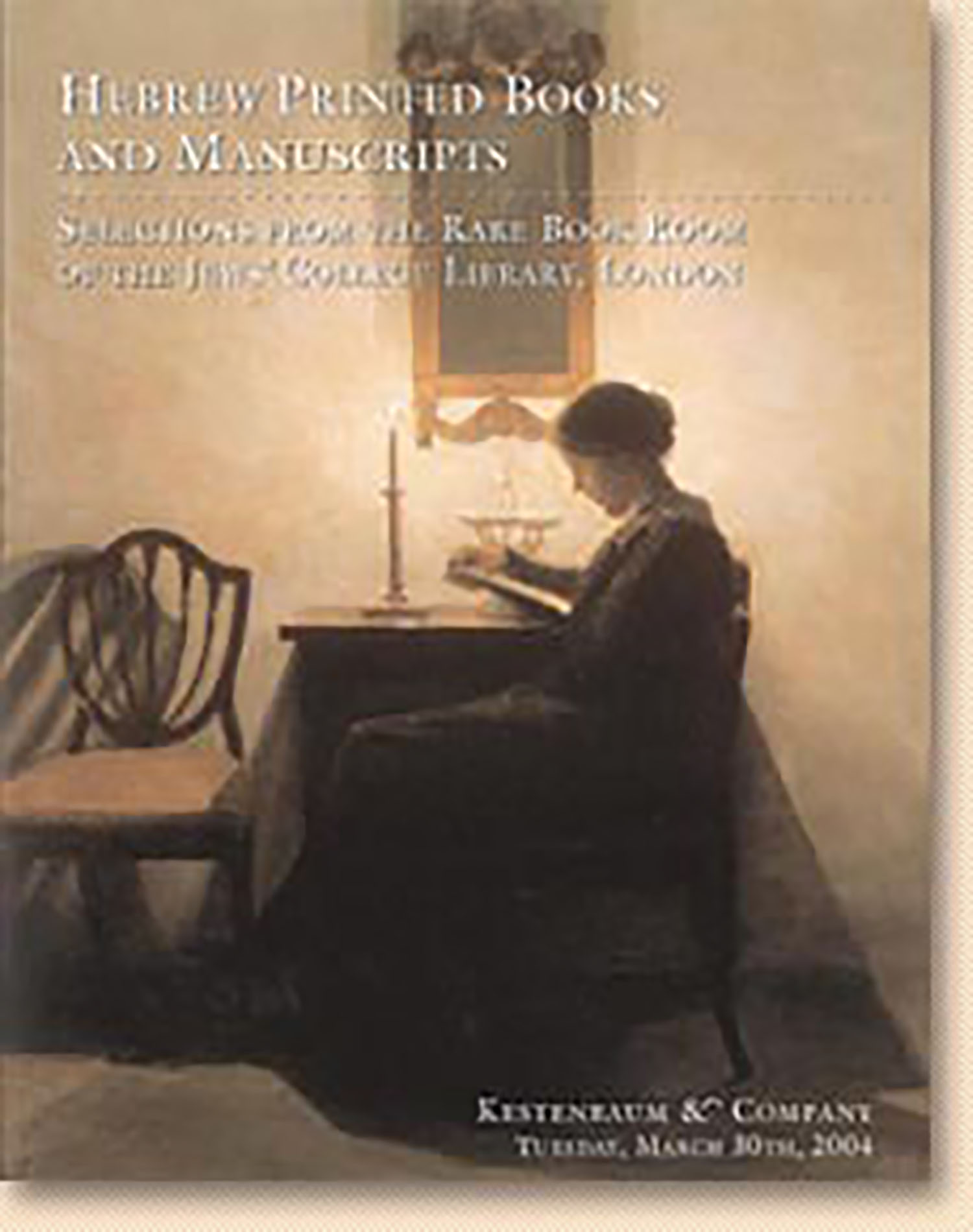(PHILOSOPHY)

AUCTION 23 |
Tuesday, March 30th,
2004 at 1:00
Hebrew Printed Books & Manuscripts from The Rare Book Room of the Jews College Library, London The Third Portion
Lot 189
(PHILOSOPHY)
v.p: v.d
Est: $500 - $700
PRICE REALIZED $400
Originally written in Arabic, Emunoth Veh’de’oth was the first systematic treatise of religious Jewish philosophic literature. Saadiah Gaon’s purpose is two-fold: to demonstrate the principles of Judaism are compatible with Reason and to interpret these principles in a manner that their rationality be evident. For a brief over-view of Saadiah’s philosophic arguments in this work, see M. Waxman, vol. I pp. 322-7
Joseph Albo’s philosophical exposition proceeds from the view that every religion is founded on three basic principles: the existence of God, Revelation and reward and punishment. True faith, according to Albo, is that which recognizes not only the roots of these three fundamental principles, but also their logical consequences. The goal of man lies in perfecting himself, and the way of human perfection according to Albo, lies in striving to become similar to the supreme symbol of perfection - God. This can be achieved by doing good and right out of love for God through the loving fulfillment of His will and commandments. For a brief examination of Albo’s philosophies and the thinkers upon whose ideas he built, see Zinberg, vol. III pp. 233-9
